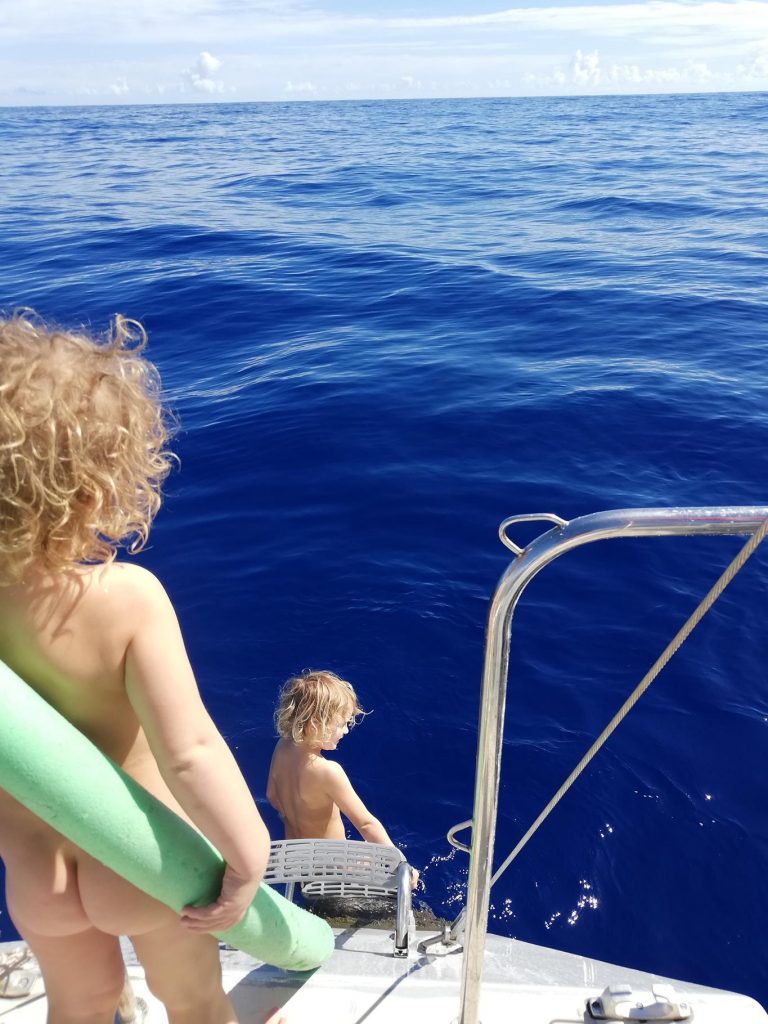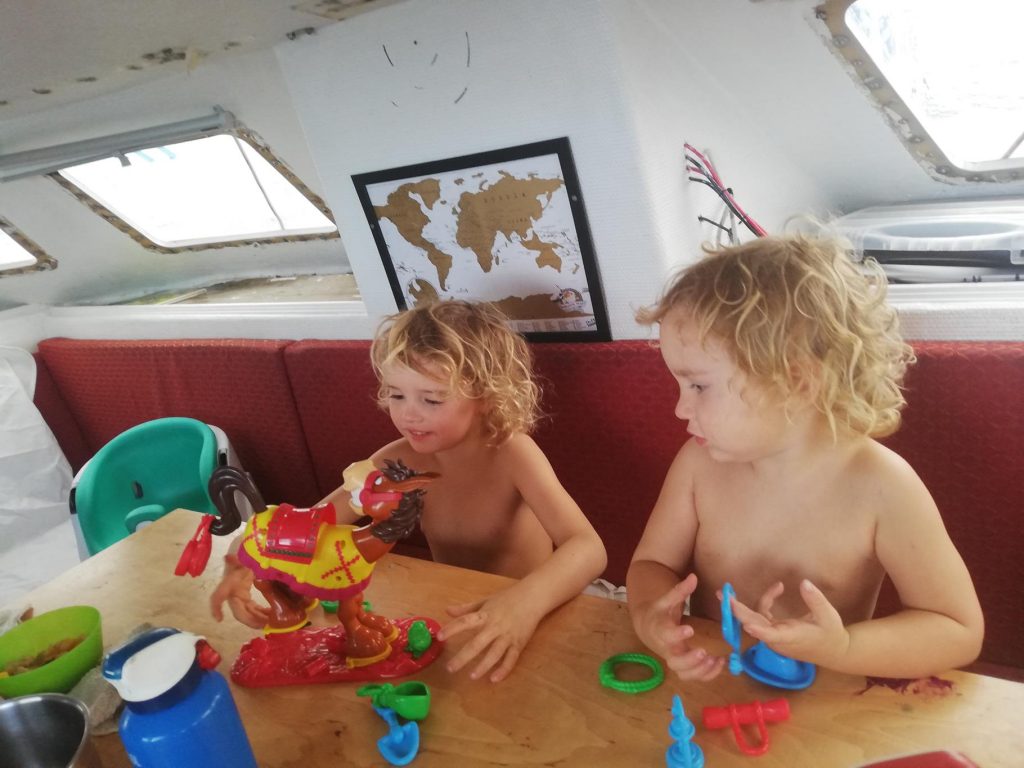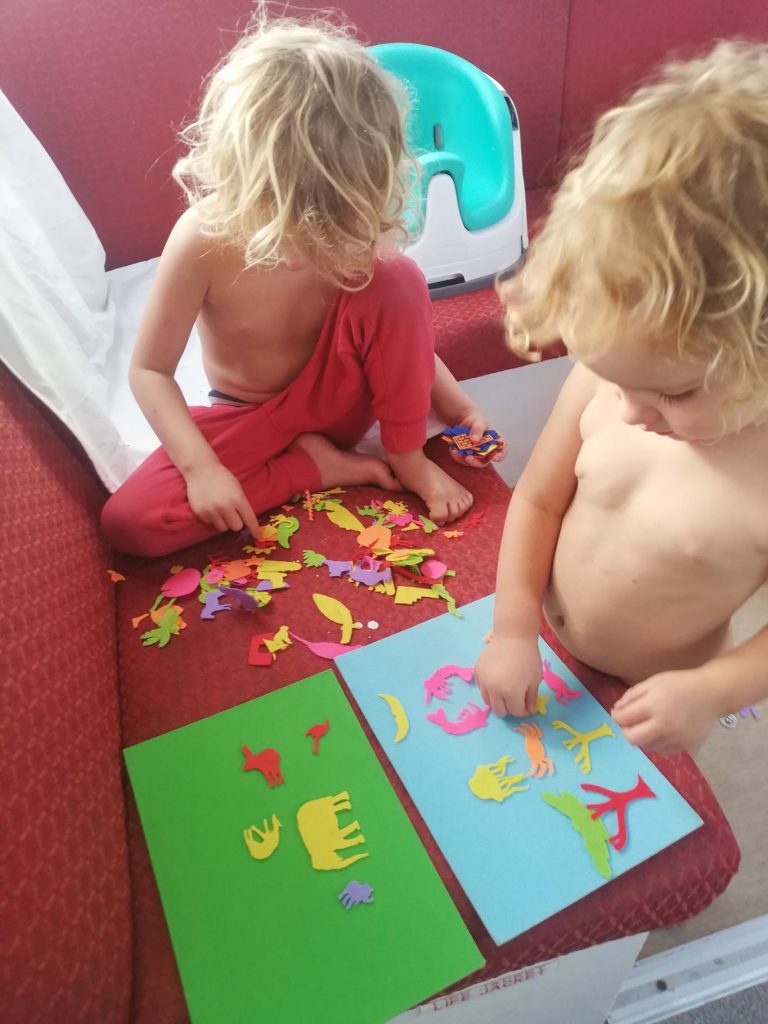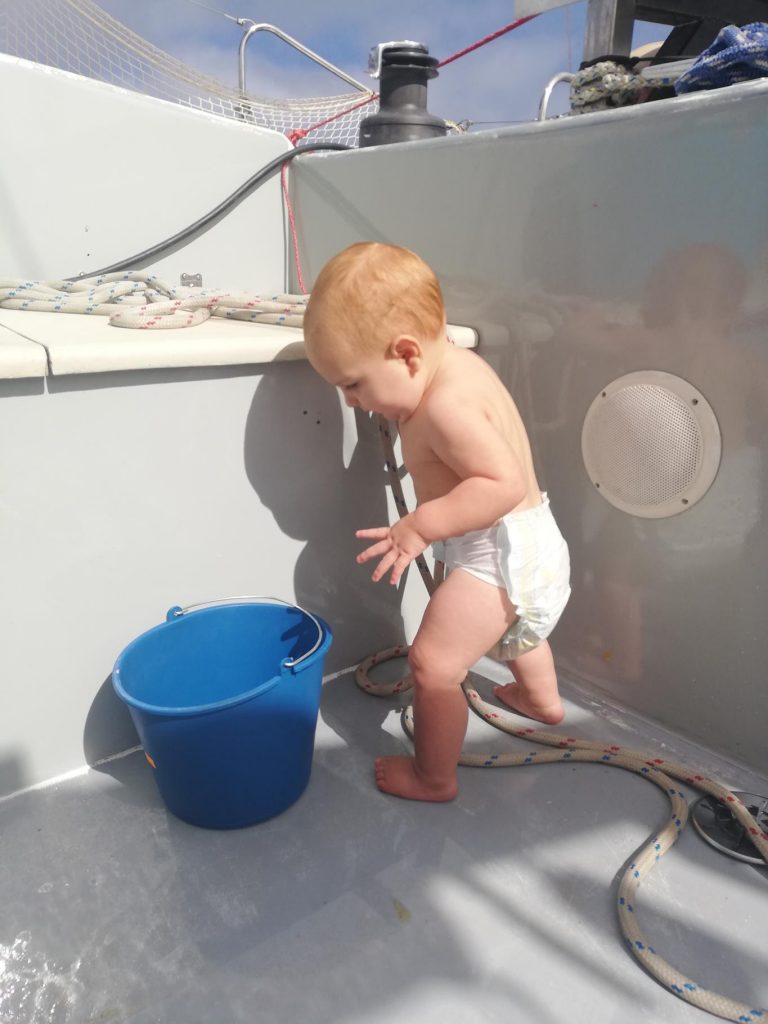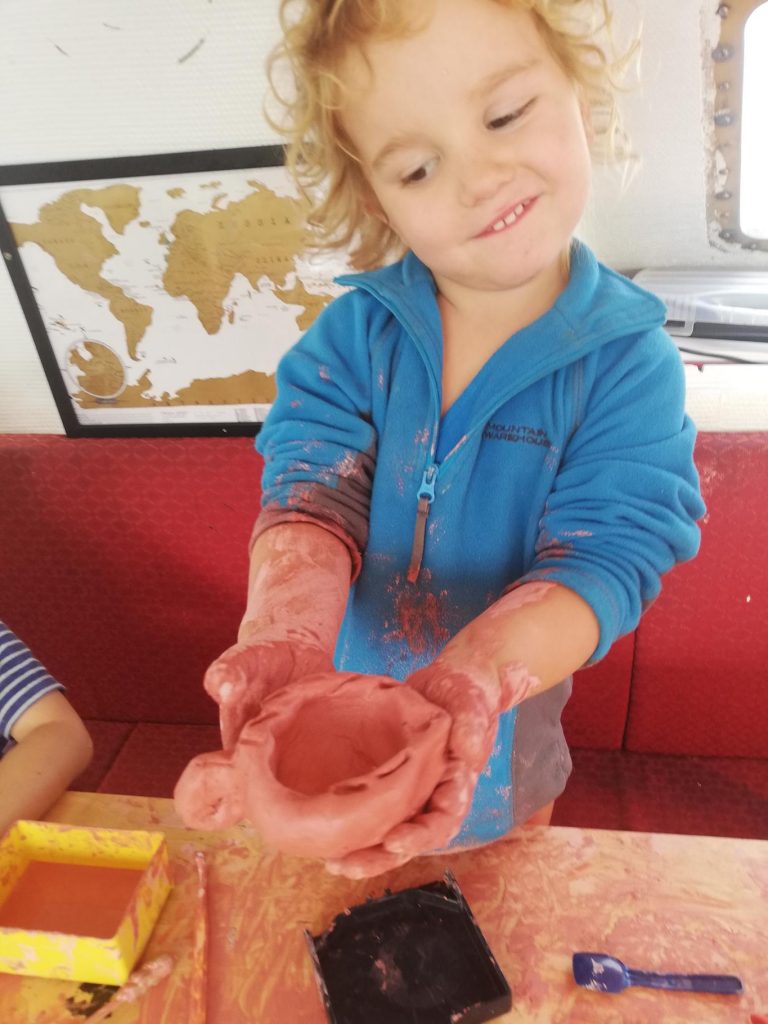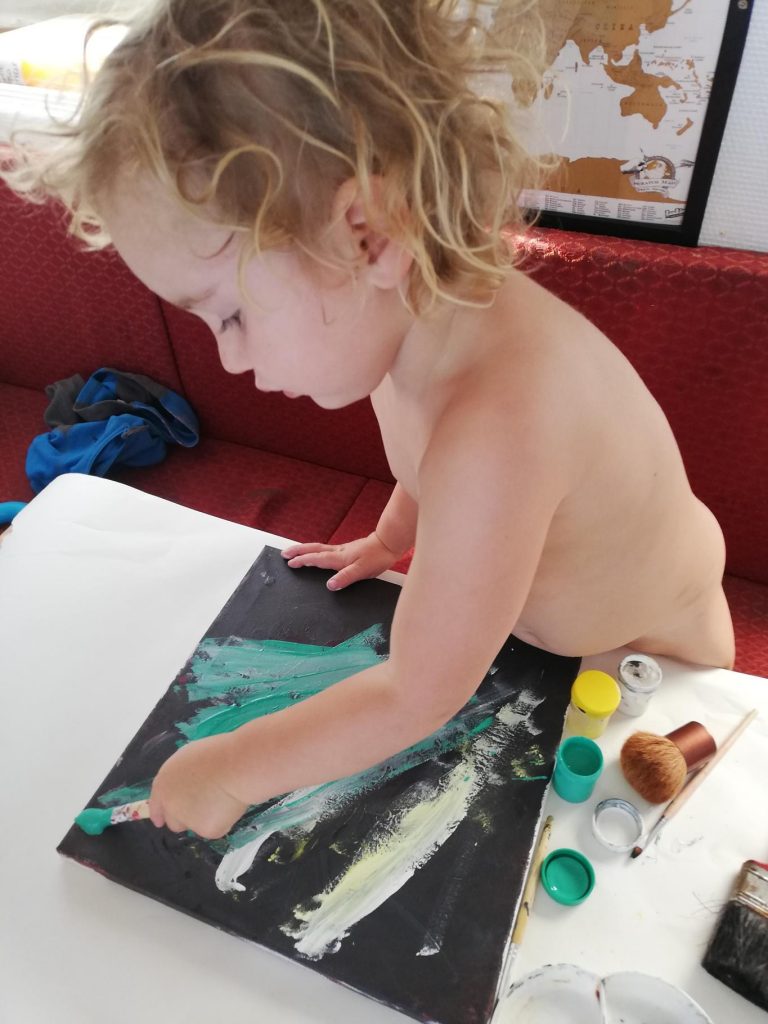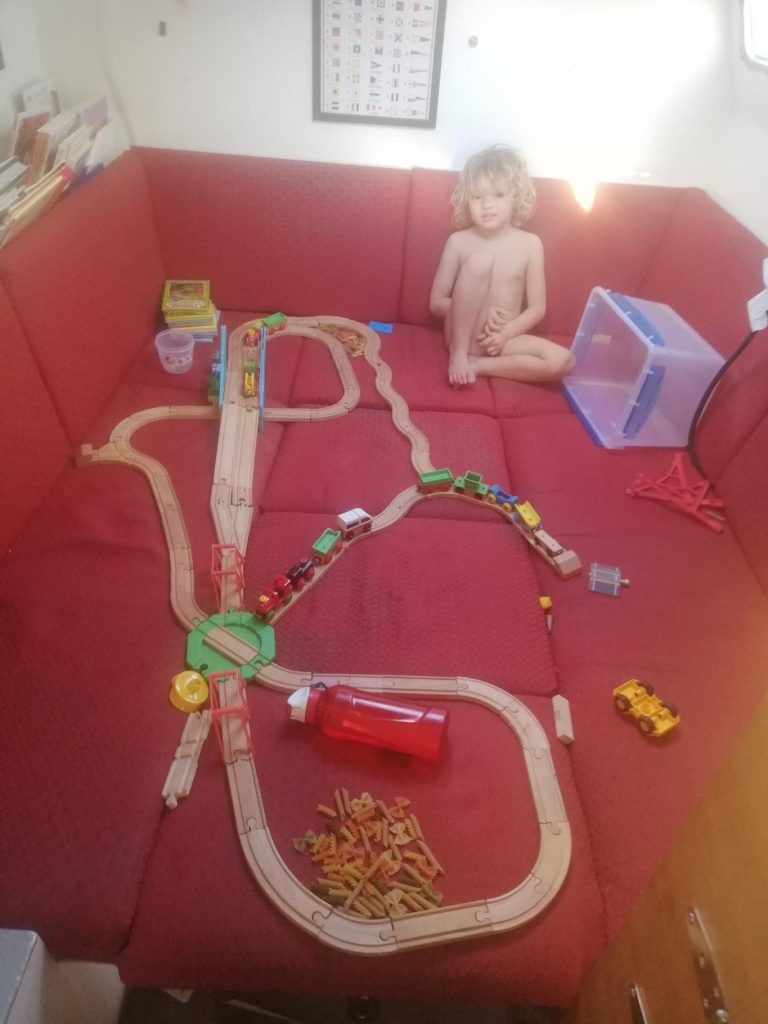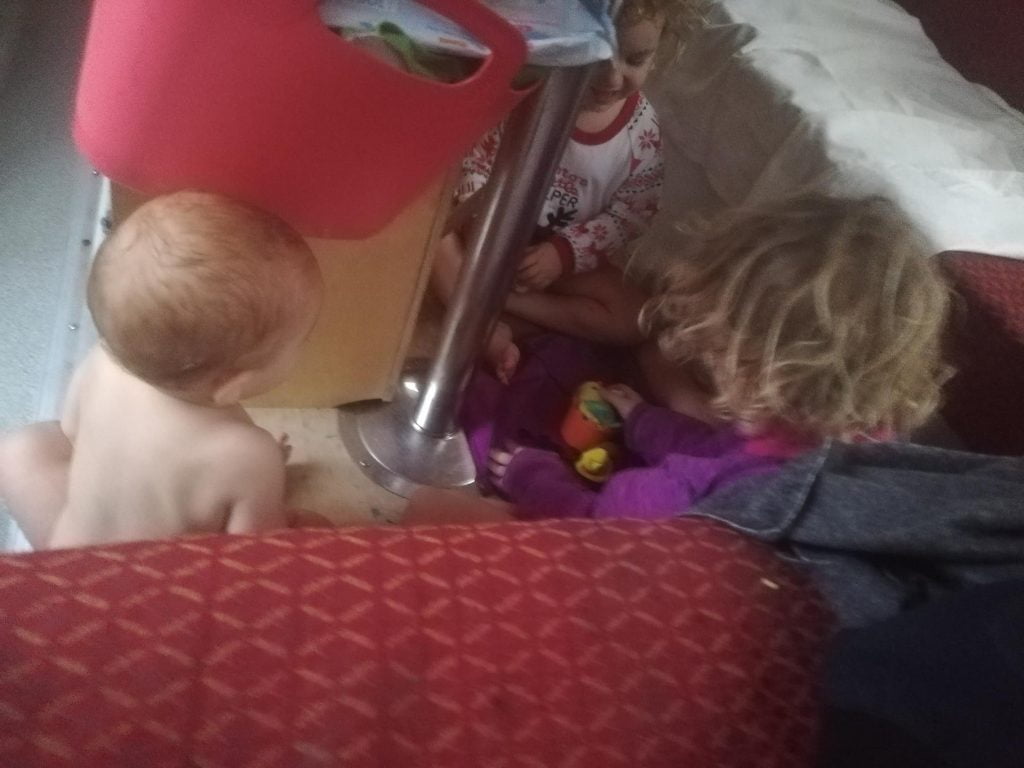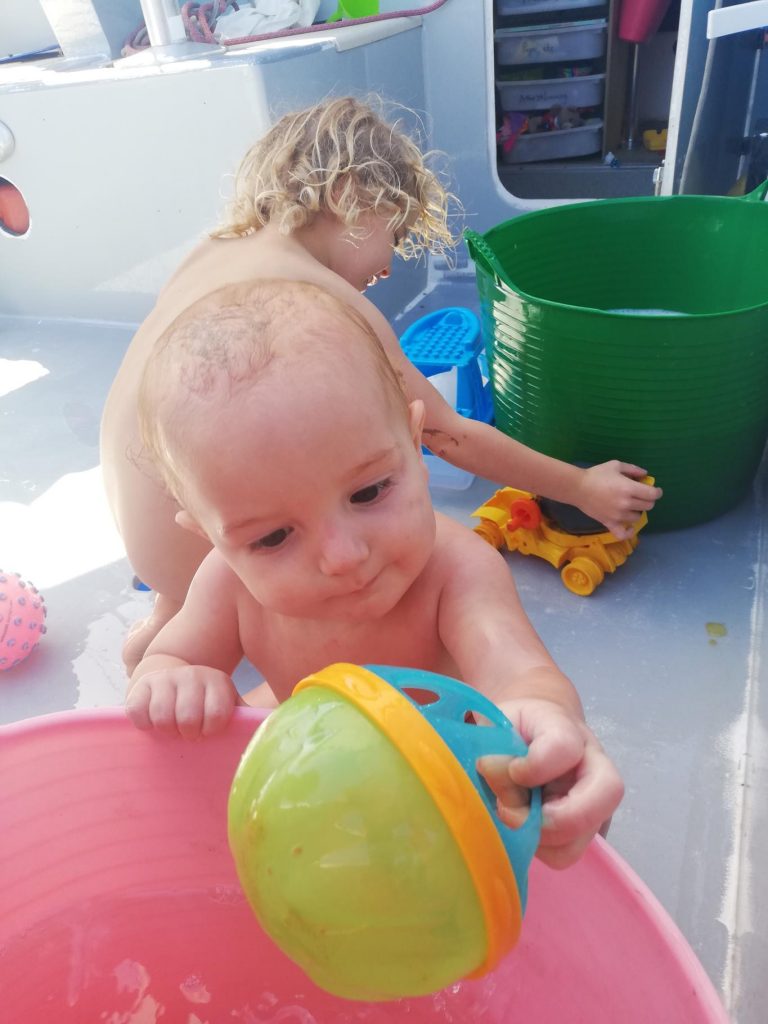A few people have asked us how we managed to keep the boat sailing 24-7 when there were just two of us to crew the boat, and three kids to look after. ‘When do we sleep?’ being the most common question. So, I’ll have a go at explaining, and perhaps help other sailors-with-kids to decide whether they want to go offshore at the same time.
How we have handled passages before
It’s worth mentioning the context first. On all of our long passages, crossing the Atlantic included, Charlotte has been breastfeeding. Added to that, we co-sleep (currently with Theo and Hector; though Arthur joins us every now-and-then), and Hector generally wakes up in short order if mummy isn’t next to him. For that matter, it’s only recently that Theo (now 3) sleeps for long with me rather than Charlotte. So, a traditional night-watch pattern of e.g. 4 hours on, 4 hours off, would be a huge wrench to the kids’ routine, and more likely than not leave us all grumpy and tired. Add in the fact that I LOVE night-sailing, and need less sleep than Charlotte, and it makes sense for me to take the majority of the night time watches.
On shorter offshore passages (crossing the Bay of Biscay, and from Rabat to Lanzarote) our method has been simple. I can manage pretty well for a few days on cat naps only, so have taken the whole night watch and slept in 20 minute blocks. I use a timer on a watch that buzzes after 20 minutes – then take a look around, do something else (e.g. trim a sail, make a cuppa, eat something, write the log), take another look around and then assuming it is safe to do so go back to sleep, resetting the watch. That works fine and could be easily be sustained over longer periods with the addition of a nap or two in the day.
Adapting to the Atlantic – sleep patterns
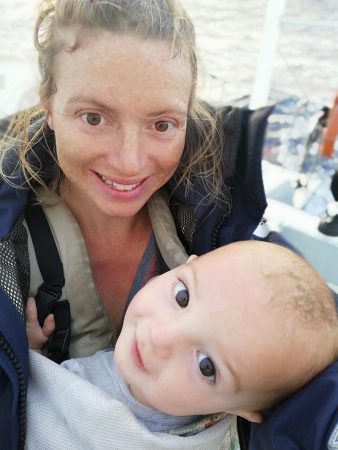
This is how we started out across the Atlantic too. But after a couple of days Charlotte wanted in on the night-time sailing fun. Hector sleeps most deeply in the first few hours of the night, so she took watch from say 9pm (when the small kids are asleep) through to between midnight and two-ish. If Hector wasn’t in the wrap with her, she generally had to pop down to feed him to sleep once, and then went to bed either the second time he woke or when she was too tired to read her kindle.
I would then take watch to whenever Theo and Hector woke Charlotte up (dawn – they are light activated at present). She got dressed and took over – after the first few days, even at dawn, it was plenty warm enough for the kids to be outside with her. So they sat outside and played/chatted as the sun rose while I popped downstairs for a nap. Once Arthur woke up Charlotte tried to feed them and keep them occupied for a while (e.g. with audio books) as well as looking after Hector and the boat. She’s good at that, so when conditions didn’t need more than a cursory watch I probably got another 2 hours of sleep. Unless Arthur woke me up to tell me “something exciting”, which as you can imagine I greatly appreciated.
I actually found this routine much harder than the 20-minute naps all through the night, as after the first block of sleep I found napping much more difficult and being awake from c.1-7 doesn’t fit with my circadian rhythm, funnily enough. So, most days I also had another hour or so in bed, snatched whenever Hector had a deep enough nap. Meanwhile Arthur and Theo had ‘video time’ – normally Blue Planet or Planet Earth, sometimes Octonauts, very occasionally Cosmic Yoga – and Charlotte did domestic things and looked after the boat.
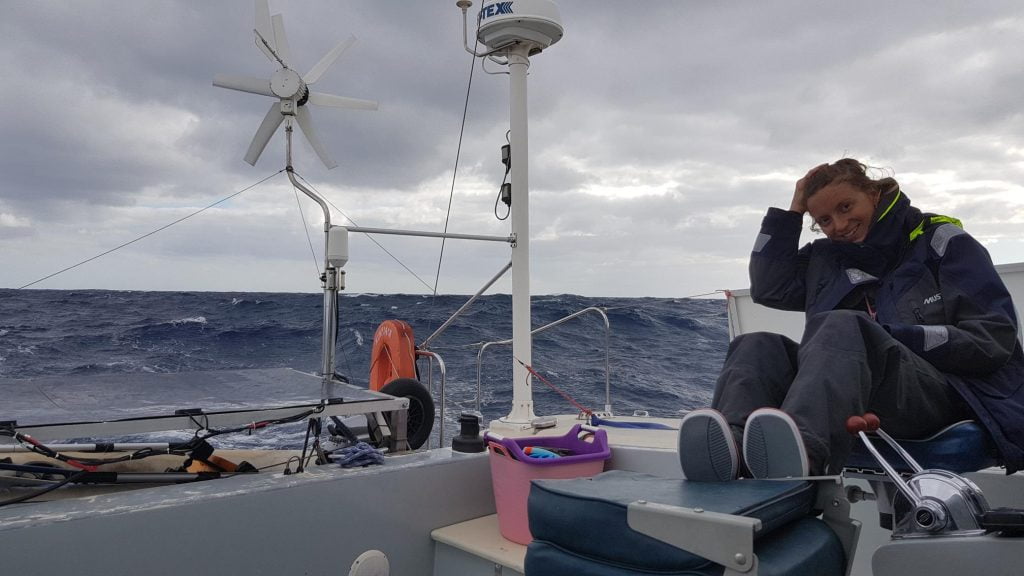
Watch pattern and sailing the boat
The rest of the day, we didn’t have a nominated “person on watch”. If either of us felt at all seasick, or tired, we went outside and sat at the helm for a while to refresh. Otherwise, we were just a family living in a boat while it sailed itself across an ocean. One of us would take a look around every 20 minutes or so – I don’t know why as we only saw three other boats on the crossing, but it would have felt neglectful not to. We both became pretty good judges of when the boat was speeding up, or the wind angle was changing our sail balance, or the waves were building/falling, and the many other things that indicate a change in conditions. When one of us felt like it was necessary, an adult went outside to see what was happening and if we needed to do something about it.
I should mention that whenever there isn’t someone on deck we have the mainsail reefed so that it would be happy with 5-10knots more wind than we currently have or is forecast (whichever is higher). The jib, we adjust to conditions but again, if we’re not paying much attention we tend towards the conservative. Virtually all of the steering, apart from on the last day, was done by the autopilot.
At various points during the day, one of us did our regular checks – for the first few days following a tick-list, after that more informally. These included things like have we cleaned the toilet (seasickness trigger for me), is the fresh food storing OK, have we cleared the cockpit and interior floors of kid detritus before dusk, is there any sign of chafe on the running rigging, has any of the standing rigging moved, are the solar chargers working, is the dinghy still secure, engine checks, is there water in the bilges, how much fresh water do we need to make… the list goes on. Most of those were generally done in a burst of activity when the bigger kids were entertaining themselves with an activity and Hector was settled with one of us.
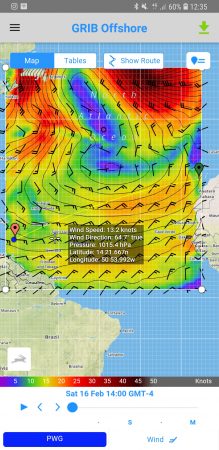
The other regular sailing-related thing I did, “I” rather than “we” because we had (stupidly) only set up the Predictwind offshore app on my phone, was check the weather. I’d set it to download the longer-range forecasts over our Iridium before breakfast and then we would make any passage-planning decisions (when the forecast had downloaded) after breakfast. And before dinner I’d start downloading a short-range but more detailed forecast to make decisions about reefing the sails before dark and help us know what to expect in terms of gusts, changes in wind direction, etc., overnight. And, about twice more in the day/night something by way of a forecast would be downloaded. We were a little obsessive about it, really.
Making the most of life on passage
So that’s the sailing bit. What about the living, and keeping the kids occupied so that they don’t go batshit crazy and kill us bit? Well, we stocked up on essential supplies – things like modelling clay, paint, paper, a pair of canvases, craft-activities, that sort of thing. The duplo and lego were sorted out and easily available, as was the train set. We swapped some of the “recently read” books from the bookshelf with the other books from a cupboard. We intended to download some new videos (the kids don’t watch a lot of TV), but got stymied by a lack of internet in Valle Gran Rey. And we moved some music from our hard disk onto a USB so we could play it from the car stereo connected to the saloon and cockpit speakers. Given the number of times the kids made us listen to “run run Rudolph” that may have been a mistake. But their Elvis obsession was fun to join, even if explaining the lyrics line-by-line as Arthur demands proved… difficult.
Time for a swim.
Buckaroo
Baking a cake
Fuzzy felt
Learning to walk.
Look what Theo made.
Theo with oil based paints. Good idea.
Quite a train set
Three brothers in their den
Water games for Hector
Arthur's lego creation
I think that gives you an idea of how our days were spent. Playing, basically. I think one of the reasons the kids had such a good time on passage is that for the majority of the day there were two adults playing with them! Or one playing while the other did the domestic chores. But after a long time getting the boat ready for an ocean crossing, which followed some major renovation work over the Canarian Summer, having two parents actually ‘present’ was lovely for them – looking after the boat on passage takes much less time than preparing it did, at least in our case.
The kids each found something of their own
Arthur took to stargazing – he particularly loved shouting “there’s Orion” every night. Once Hector and Theo were asleep he found every excuse to stay awake for a while – sneaky learning (the best kind), elaborate duplo creations, etc. Then, he took a bedtime snack and went out with either me or Charlotte to look at the stars. After a while he’d ask something like “why do stars twinkle” and much sneaky after dinner learning would ensue. Eventually he would admit he was tired and collapse in a heap on the sofa in the saloon which he has claimed as his passage-bed – although he re-joined the family-bed for a couple of nights, too.
Hector went from standing-and-holding-furniture to full on cruising around the sofas and along the cupboards while we were on passage. He didn’t seem to notice the boat movement at all, which was both a little frightening, and awesome. He’s a boat baby – the one thing guaranteed to make him chuckle even when he is a bit tired is walking him out towards the bow of the boat with the wind blowing at him (the more the better). Loves it.
Theo was just himself. He loved getting up at dawn and sitting with Charlie for a while. He pretended he felt seasick because he likes the taste of the medicine. He asked whether we were in St Lucia yet, and if St Lucia was in the Carrib, a few times a day. He wanted to help with every aspect of making dinner. And generally acted the same way he normally does!
So that’s how it worked out for us. We’d happily cross an ocean again with the three kids at this age (or any other ages, probably). Indeed, we’ll almost certainly be going back the other way in a few months.
